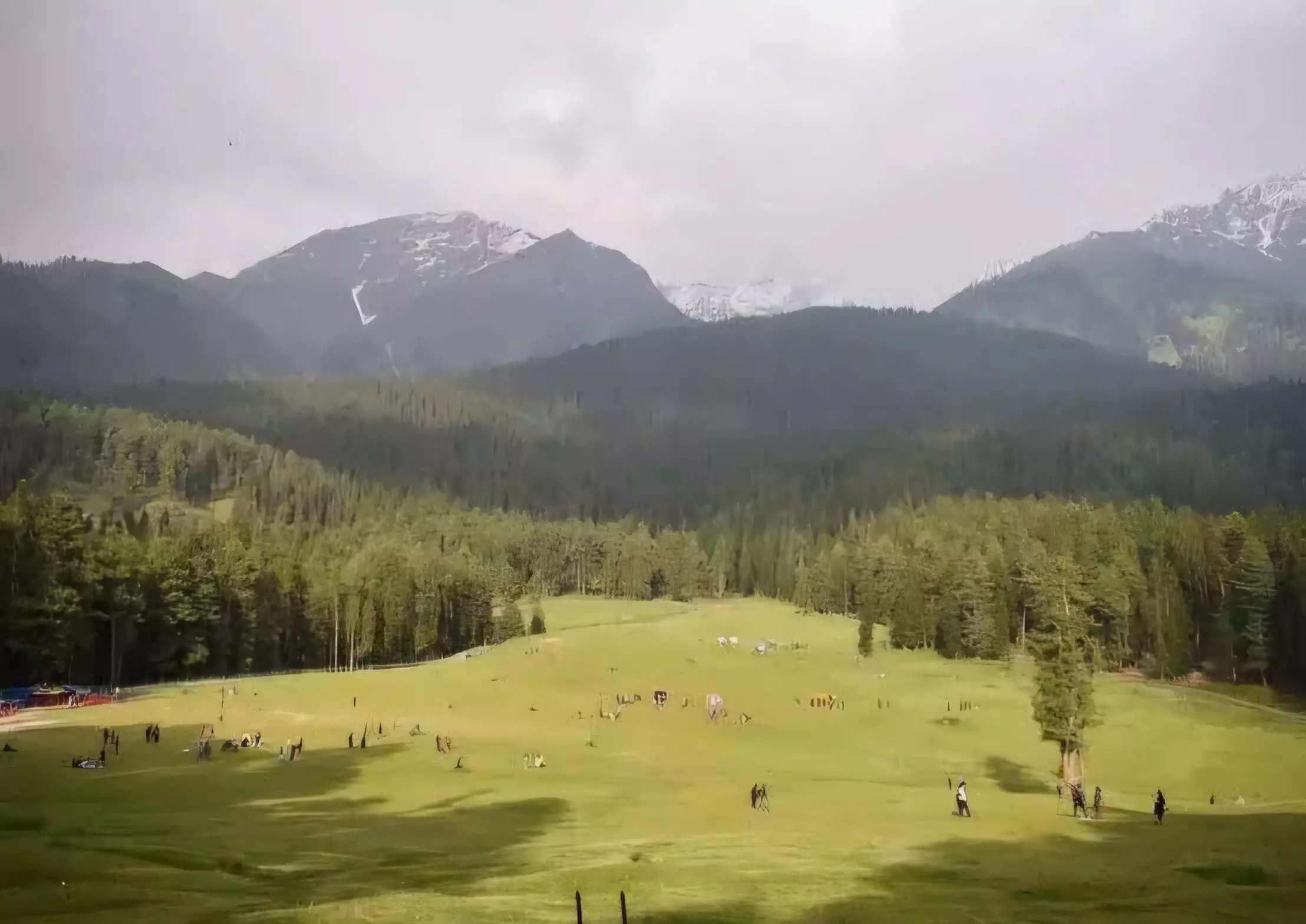Why did terrorists choose Pahalgam to attack?
This is also the biggest terror strike since the 2019 Pulwama attack in which 40 CRPF jawans were killed
By Coreena Suares
Why did terrorists choose Pahalgam to attack?
Srinagar: Pahalgam terror attack that left 25 Indians, mostly tourists, dead is one of the most vicious strikes on civilians that India has witnessed after the 26-11 Mumbai attack in 2008.
This is also the biggest terror strike since the 2019 Pulwama attack in which 40 CRPF jawans were killed.
Pahalgam attack has once again brought India and Pakistan to the brink of war. Though India has hit back strategically by announcing certain diplomatic moves, this deadly episode has pushed Kashmir economically by many decades.
For the first time in 35 years, the valley witnessed a complete shutdown and mourning against terror attacks. Thousands of tourists left the valley, never wanting to set foot again. Pakistan-sponsored terror has splashed blood over India's crown.
The bodies of the deceased were flown back to their hometown. Families bid an emotional farewell. Protests and candlelight marches were held across India.
The incident has once again sent out a message that Kashmir is not free from terror.
Why did terrorists choose Pahalgam to attack?
Speaking to NewsMeter, Lieutenant General Mohan Bhandari (retired) said, "Pahalgam area, where the attack took place, is located 100 kilometers away from Srinagar. It is one of the most beautiful scenic locations, encircled by pine trees, nothing short of Switzerland. These areas have difficult terrain in terms, thick forest, and easy for the terrorists to conceal their movements. Pahalgam is not accessible by road or vehicle, a very remote area. One has to trek or go by horseback. Civilians are the most vulnerable.”
“Terrorists must have zeroed down on Pahalgam because of its terrain, absence of security forces. Even when Union Home Minister Amit Shah visited the site post-attack, he had to be flown in a chopper. The other end of the meadows is a very thick jungle of pines, where one can hide and escape, and venture into the jungle. These terrorists can kill and disappear. By the time security forces react, they can escape."
"Please don't forget the recent statement of Pakistan Army Chief Syed Asim Munir's provocative speech calling Kashmir the 'jugular vein of Pakistan'. He reiterated the two-nation theory and the civilization between Hindus and Muslims. Experts in the field think that his speech may have triggered terror in the Valley. Pertinent to note that the terror attack happened when the Vice President of the United States JD Vance, was in India. The message was clear: that tension continues in Kashmir. Also, the Prime Minister Narendra Modi was in Saudi Arabia, a region known for its Sunni dominance. Also, the grand welcome to PM Modi by escorting his flight indicated his ties with Saudi Arabia. India shares a 3000 km boundary with Pakistan, unfortunately."
Asked if the locals gave shelter to terrorists, the officer, who executed many operations against the enemy country, said: "We cannot categorically say whether locals supported them. They would be prepared to sustain themselves. It is a very calibrated attack".
Intelligence Failure:
Ajit Doval, the National Security Advisor of India, has many questions to answer over the security lapse and Intelligence failure. How did forces allow infiltration to a level that terrorists enter tourist areas?. How did the borders turn porous? How did the terror camps along the LOC go unnoticed? Why was there no security cover when lakhs of tourists were holidaying in Pahalgam? Why was the Military not on alert after the provocative state of the Pakistan Army Chief?
India has now banned travel from Pakistan to India and vice versa, closed the Wagah Attari border, and put the Indus Valley treaty in abeyance. However, will that soothe the nerves of 1.3 billion Indians?
An officer, who was part of the Balakot attack, on condition of anonymity, said, "I cannot say what our forces must do. However, the move should be such that terror camps along the Line of Control should be demolished. The forces know their strength in terms of weapons and execution. The strike should be of a severed head. It should be such that Pakistan cannot afford to respond. Pakistan should be declared a terrorist state."
Prime Minister Narendra Modi has called for an all-party meeting on April 24, 2025. Different countries have extended support to India and unconditionally condemned the terror attack.
India hits back:
1. The Indus Water Treaty stands in abeyance. India is no longer a participant or bound by the treaty now.
2. Wagah-Attari Border has been closed with immediate effect.
3. Any SAARC Visa issued to Pakistani nationals has been annulled. They can leave India by May 1st.
4. Three Pakistani Military attachés to the Pakistan High Commission asked to leave. Declared them Persona Non-Grata. India withdrew our own three Military Attaches in the Indian High Commission in Pakistan. Five support staff were also withdrawn/removed. Families of Military Attaches also return.
5. India has reduced the Pakistan High Commission’s strength to 30 from 55. The Indian High Commission in Islamabad will also maintain 30 strength.